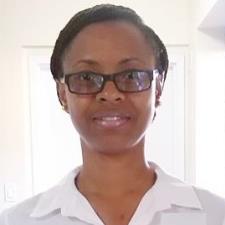1,755 Answered Questions for the topic grammar
08/02/19
You didn't miss me, right? (possible answer with correct use of English)?
A) No, I didn't miss you.B) Yes, I didn't miss you.C) No, I did miss you.D) Yes, I did miss you.According to my common sense perfect answers can be C) and B) only, and reason behind it is-...
more
Grammar
08/02/19
To use "not" or "don't" in a noun clause?
As in this sentence: "[We ask that you not take anything you read here as final.](http://doc.rust-lang.org/rust.html#disclaimer)", why "not" is used instead of "don't"?
Grammar Grammaticality
08/02/19
Correctness of omitting a definite article or a preposition?
I am writing an essay about my university experiences and a suggested correction from an English Ph.D. sounds wrong to me.The suggestion is>In our meeting to discuss...
more
08/02/19
We can see the shrine "become/becomes" big?
I'm correcting some writing and the student wrote, > We can see the shrine **become** big, little by little, from the ferry.As far as I'm concerned, it's grammatically okay, but I'm having...
more
Grammar
08/02/19
I am done or "I have finished" or "I am finished" or "I finish"?
I was trying to say the following and got bewildered with the different choices.> I have "To Kill a Mockingbird" on my list. I will write you about it when **I am finished reading it.**> I...
more
Why is the phrase 'Should we not' a Positive assertion?
This phrase is asking the listener to take action in the positive to help our neighbors. > "Should we not stand by our neighbors who seek to better their> conditions in Kansas and...
more
Grammar
08/02/19
Our coach forbids (us) 'drinking'/'to drink'?
In my grammar book "Grammatica Inglese Facile (Simple English Grammar)" I read that the following sentences are both correct:>- Our coach _forbids drinking_.>- Our coach _forbids us to...
more
Grammar
08/02/19
Is it correct to start a sentence with the infinitive of a verb without the "to"?
The context is: "Yes, your card made me close my birth month with a flourish! Receive it on the last day of April was perfect and very meaningful to me."Is it correct to start the sentence...
more
Grammar
08/02/19
Is "more informed decisions" or "better informed decisions" the more correct form?
I'm writing some copy for a marketing campaign that promotes the use of a software testing tool by demonstrating how the results of the tool provide you with a greater wealth of information on...
more
08/02/19
What do you call "that" or "where"?
For words that sit as placeholders for other words (and introduce subordinate clauses), is there a name?For example,>The quick brown fox __that__ jumped over the lazy dog.>The man __who__...
more
08/01/19
Subject, verb, direct object, object complement versus "subject, verb, indirect object, direct object"?
Reading _English Grammar_ (HarperCollins College Outline, published by HarperResource, an imprint of HarperCollinsPublishers) I found a chapter (_Sentence Basics_) that explains that in English...
more
Grammar Morphology
08/01/19
Why is 'hyper-' considered a prefix, but 'tachy-' is considered a combining form?
I am learning medical terminology. My medical terminology textbook has me all confused about roots, prefixes, suffixes, and combining forms; so I have been doing some research. I've found that most...
more
Grammar
08/01/19
Placement of variables in a correlation?
Lung cancer correlates with smoking.Smoking correlates with lung cancer.Are both correct or does one have to worry about which one is the dependent variable (lung cancer) and which one is the...
more
07/31/19
Conjunction Reduction British English vs American English?
I am finding there is a difference in what is acceptable between American and British English. I posted this question on Facebook:"Grammar friends, I need your help! Is omitting the pronoun the...
more
07/31/19
Is using "I don't know that" instead of "I don't know if" grammatically correct?
When asked whether he recognized equal rights of atheists, George H. W. Bush said<sup>1</sup>:> No, I don't know that atheists should be considered as citizens, nor> should they...
more
Grammar
07/31/19
in the year 1908 or "in the year of 1908"?
Do we need preposition **"of"** after a **year**?>Freud is a visitor at James’s Sussex residence, Lamb House, in the year 1908
07/31/19
Is it usual to use “full-cry” as a stand-alone adjective?
Maureen Dowd’s article titled “Spellbound by Blondes, Hot and Icy” appearing in December 1st NY-Times jumps from Alfred Hitchcock’s favor of blonde actresses to the dispute of Hillary Clinton’s...
more
Grammar
07/31/19
Difference between verb+preposition and phrasal verbs?
I am reading a book on grammar. Now I can't understand the difference between the `verb+preposition` and `phrasal verbs`. For example>He never thinks about(or of) other people.and>put on your...
more
Grammar Word Usage
07/31/19
How can one be confident about using "farther" and "further" without mixing them up?
07/31/19
Is a determiner considered an adjective or a separate part?
I came across some blogs which states that determiners are types of adjectives (according to traditional grammar), whereas wiki (which I do not entirely trust) indicates some key differences. after...
more
Grammar
07/30/19
Is the sentence structure correct? "I think he doesn't like it"?
Back in high school, my English teacher told me that we should always use "I don't think" than "I think...not..."For example, the sentence "I think he doesn't like it" is wrong - we should use "I...
more
07/30/19
again in "Today is the oldest you've ever been and the youngest you'll ever be again."?
Saw this sentence today. It has two variations, one ends with *again* and one without it. While the *again* does have a nice ring to it, I kind of feel that it makes no grammatical/semantic sense...
more
Grammar Prepositions
07/30/19
Why do we say "in range" but "out of range"?
Is is the pair of expressions "in range" and "out **of** range" just an idiomatic outlier?Maybe not, as you can put something "in the list" or take it "out of the list".But I can think of other...
more
Grammar
07/30/19
Which is grammatical correct "woke to the..." or "awoke to the..."?
For instance, should I say:> She woke to the rattling sound of the alarm clock.or> She awoke to the rattling sound of the alarm clock.(If both are correct, which one is more commonly used?)
“Has reported” as present perfect vs. “has” as present + “reported” as a noun?
In the following sentence below, I **want** to use the word *reported* as a noun, but it looks like I’m using the present perfect form *has reported*. How can one be clear when constructions like...
more
Still looking for help? Get the right answer, fast.
Ask a question for free
Get a free answer to a quick problem.
Most questions answered within 4 hours.
OR
Find an Online Tutor Now
Choose an expert and meet online. No packages or subscriptions, pay only for the time you need.























